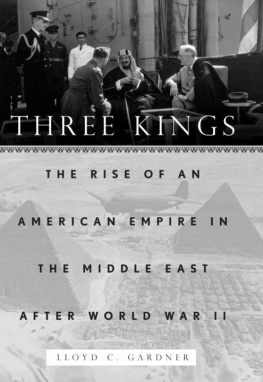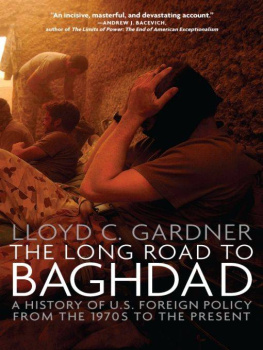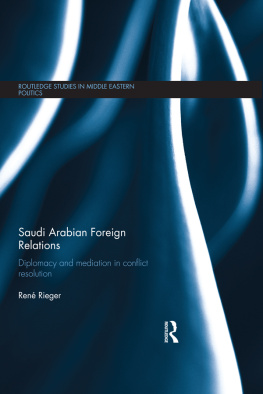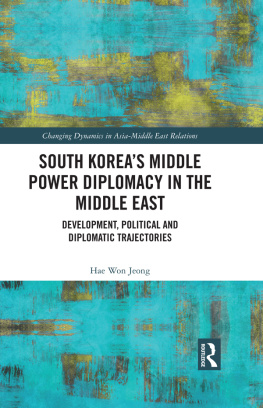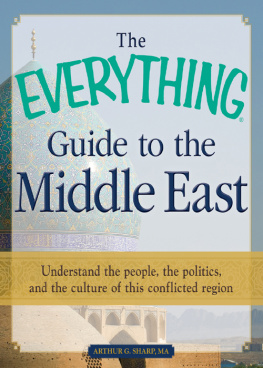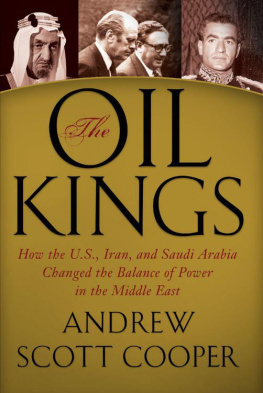Also by Lloyd C. Gardner
The Long Road to Baghdad: A History of U.S. Foreign Policy from the 1970s to the Present
Economic Aspects of New Deal Diplomacy
Architects of Illusion: Men and Ideas in American Foreign Affairs, 1941-1949
The Creation of the American Empire: U.S. Diplomatic History (with Walter LaFeber and Thomas McCormick)
American Foreign Policy, Present to Past
Looking Backward: A Reintroduction to American History (with William O'Neill)
Imperial America: American Foreign Policy, 1898-1976
A Covenant with Power: America and World Order from Wilson to Reagan
Safe for Democracy: The Anglo-American Response to Revolution, 1913-1923
Approaching Vietnam: From World War II to Dienbienphu
Spheres of Influence: The Great Powers Partition in Europe, from Munich to Yalta
Pay Any Price: Lyndon Johnson and the Wars for Vietnam
The Case That Never Dies: The Lindbergh Kidnapping
Edited by Lloyd C. Gardner
The Great Nixon Turnaround: America's New Foreign Policy in the Post-liberal Era
America in Vietnam: A Documentary History (with Walter LaFeber, Thomas McCormick, and William Appleman Williams)
Redefining the Past: Essays in Honor of William Appleman Williams
On the Edge: The Early Decisions in the Vietnam War (with Ted Gittinger)
International Perspectives on Vietnam (with Ted Gittinger)
Vietnam: The Search for Peace (with Ted Gittinger)
The New American Empire: A 21st Century Teach-In on U.S. Foreign Policy (with Marilyn B. Young)
Iraq and the Lessons of Vietnam: Or, How Not to Learn from the Past (with Marilyn B. Young)
LLOYD C. GARDNER





History never runs backward and there isn't any chance of turning the pages backward-we must go forward-we must assume the leadership which I think God Almighty gave us and assume the responsibility which goes with that leadership.
-Harry S. Truman, May 18, 1951
As we contemplate the difficult process of getting out of Iraq without making matters worse, it is time to reflect on the deeper history of how the United States came to be in the Middle East, especially before embarking on a new mission to rebuild Afghanistan. A place to begin is with the events leading up to President Harry S. Truman's speech on March 12, 1947-the Truman Doctrine. Remembered today as the necessary American answer to the expansionist ambitions of the Soviet Union, the Truman Doctrine was really much more than that. From the beginning it provided a rhetorical base on which to reassemble the broken pieces of the old European empires in a new constellation of states that, according to the accepted narrative, defied the wiles and threats of "International Communism" by means of military and economic aid. As such, it was a great success.
The actual history of the Truman Doctrine contains far more doubts, and many more twists and turns, present from the very outset, when the Senate Foreign Relations Committee struggled to comprehend the likely outcome of the president's initial request for $500 million to send to Greece and Turkey to bolster their internal and external fortitude. It had a prehistory dating to World War II and Roosevelt's dreams for Iran and negotiations for the first air base in Saudi Arabia. From that time onward, American policy makers continued to develop and define the nation's role at the ancient crossroads of empire-the Mediterranean. They saw themselves as successors to the Pax Britannica, not in the sense of nineteenthcentury imperialists, of course, but as creators of a dynamic new era that would prove more enduring than the old empires.
The Truman Doctrine had its greatest difficulty, ideologically, in defining the enemy. Without naming the Soviet Union, the president referred to forces directed against existing governments from the outside, and their subversive allies joined together to strike from within, a lethal combination. That loose formulation tried to distinguish between agent-inspired revolutions and non-agent-inspired revolutions, an almost impossible undertaking. Eisenhower's secretary of state, John Foster Dulles, adopted the term "International Communism" to aid him in attempting to explain why, in the absence of an actual Soviet military threat, it was necessary to send arms to countries gathered under the umbrella of the Truman Doctrine. At various times, especially in the original congressional debates on the request for money, and then again at the time Dulles was trying to sell the Eisenhower Doctrine in 1957 as an advance on definitions of the threat, the rationale became brittle and almost shattered into fragments of ideological incoherence. Added to this difficulty was the ever-changing cast of American supporters who became useless or actually hindrances, from the Shah of Iran to Egypt's Nasser, Saddam Hussein, and, most recently, Hamid Karzai in Kabul.
General David McKiernan, the former commander in Afghanistan, reflected a commonly held view among American policy makers when he warned against taking the history of British and Russian failed efforts to succeed in that country as at all applicable to American prospects. Of course, as he might note, there was now no other "superpower" to provide the Taliban or Al Qaeda with "Stinger" missiles, the scourge of the Russian army and air force in the 1980s, but he went beyond that to make a general comment that all such historical comparisons were "unhealthy." It was a typically American, can-do kind of talk, tailored from traditional notions about the disinterested motives of American foreign policy, the optimism of the military commanders, and a belief that technology ruled politics. Such convictions all too often make us deaf to unwelcome messengers, and thus foster a search for alternate facts, not truth.
Flash back to the spring of 1965 and the National Teach-In. Professor Arthur Schlesinger Jr., the famous historian and chronicler of the Kennedy years, was now beginning to waver a bit about Vietnam. He nevertheless takes a stand in favor of sending in the army. He is against the bombing campaign Rolling Thunder, however, saying bombs won't do the job. And then he adds his own take on history. It's time, he says, to stop asking how we got in and concentrate on how we get out of the situation without damaging our national security. Many in the audience nod, but in the back a hand raises.
The hand belongs to William R. Taylor, a professor of history at Stony Brook. "Arthur," he begins, "I wonder if you would care to venture an opinion on when history stopped being important to our situation and a discussion of alternatives. Was it six years ago? Six months? Six weeks?"

